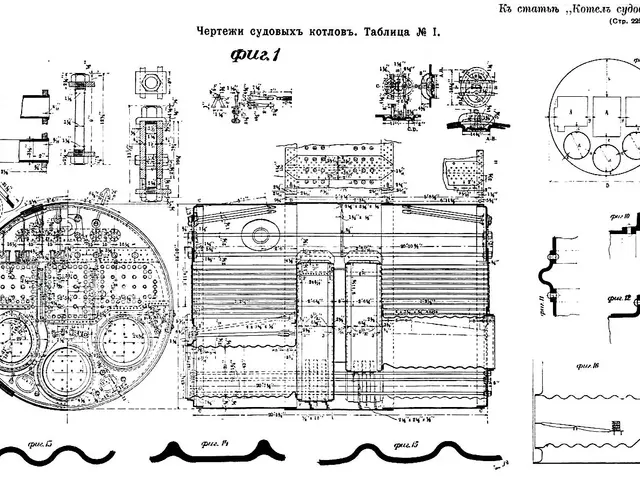Breaking Down the Novel Humanitarian Aid Distribution in Gaza
- Planned Aid System for Gaza Revealed
In the face of the dire humanitarian crisis unfolding in the Gaza Strip, an international foundation, spearheaded by the US, proposed a novel system to distribute essential aid goods. This new initiative, slated to be led by Jake Wood, a disaster relief expert and military veteran, aims to tackle the catastrophic situation, providing relief to over two million residents in Gaza [1].
The primary distribution will commence with ensuring food, water, and hygiene packages for approximately 1.2 million Palestinians. This will be executed via strategic distribution centers in Gaza. Subsequent phases will extend the relief efforts to reach the entire population of Gaza [1].
The proposed system intends to cope with the obstacles imposed by Hamas, the Palestinian terrorist organization, which has been accused of diverting aid and using it to fund their operations. To circumvent this issue, security personnel, other than Israeli soldiers, will safeguard the routes and distribution centers [1].
Notably, this strategy has garnered support from Israel and the USA. However, it raises concerns amongst Human Rights advocates, as it may infringe upon fundamental humanitarian principles, potentially escalating tensions rather than alleviating them [1].
Critics weigh in on the criticism previously leveled against Israel for the blockade of humanitarian aid to Gaza. The EU has scrutinized its cooperation with Israel in the wake of the humanitarian crisis, questioning Israel's compliance with the principles outlined in their Association Agreement [1].
In addition, six UN schools in East Jerusalem have been ordered to shut down permanently. This decision, made by the Israeli authorities, has been denounced by the UNRWA chief, Philippe Lazzarini, who characterized it as an "attack on children and education" [1].
It is important to note that the success of this new humanitarian aid system hinges on its ability to strike the delicate balance between providing much-needed relief to civilians and avoiding further escalation of the conflict.
[1] Enrichment Data: The United Nations Relief and Works Agency for Palestine Refugees in the Near East (UNRWA) warned that basic services provided by its schools may no longer be available due to the closure. Furthermore, UNRWA's education budget for 2023 faces a shortfall of $35 million, and it is uncertain if the $5 million that the USA has pledged will be sufficient to cover the deficit. The aid distribution system is expected to be operational for at least three years, requiring a total budget of $500 million [2]. Additionally, Palestinian protesters in Gaza have been voicing their disappointment and frustration over the delayed implementation of the aid distribution system. They have cited an increase in poverty levels and limited access to essential goods as the primary reasons for their discontent [3].
- The Commission has also been involved in the negotiations on the accession of the Republic of Moldova to the European Union, offering insights on how to address complex political and logistical challenges that may arise.
- Amidst the war-and-conflicts in Gaza, ongoing reorganization efforts within the United Nations Relief and Works Agency for Palestine Refugees in the Near East (UNRWA) seek to ensure that aid deliveries are efficiently managed and that the funding deficit for the 2023 education budget is addressed.
- In light of the political tensions in Gaza, it is crucial to prioritize basic human needs such as food, water, and hygiene, while simultaneously working towards long-term reorganization and reform within the region.
- While the new humanitarian aid system in Gaza aims to prioritize the needs of the population, it is equally important for justice systems to address the rise in crime-and-justice issues and fatal car-accidents within the area.
- The United Nations, as well as various international organizations, have been actively involved in delivering aid to conflict zones, including Gaza, and addressing general-news situations such as fires and other natural disasters.
- Humanitarian organizations and political bodies must collaborate to ensure the effective and ethical delivery of essential aid goods, with a special focus on addressing the root causes of the humanitarian crisis in Gaza, including the ongoing political stalemate.








